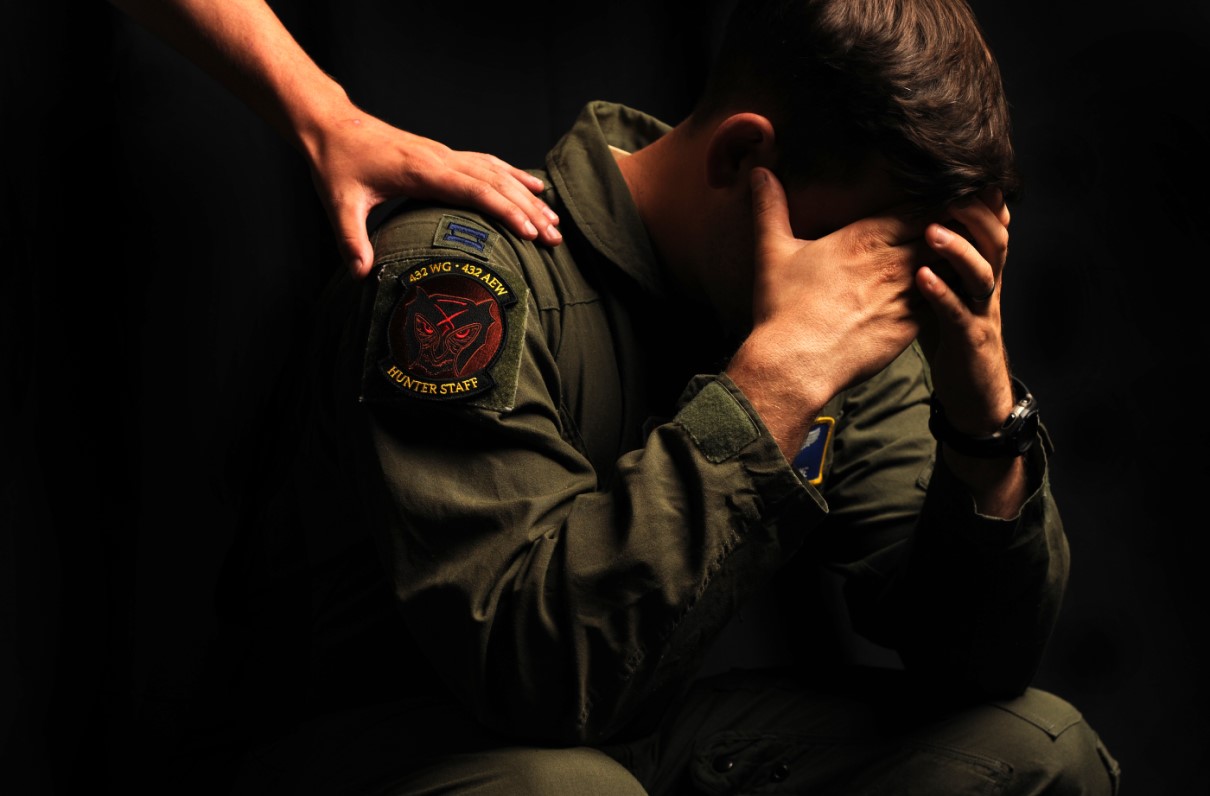Editor’s note: If you or someone you know is in crisis, contact the Veterans Crisis Line at 988 (press 1) or via www.veteranscrisisline.net.
While Congress works on legislation likely to result in reduced end strength for our overstretched forces, a new commission will work to offer lawmakers much-needed insight into the continuing suicide crisis – a problem amplified by disturbing reports regarding military mental health care.
[TAKE ACTION: Protect the All-Volunteer Force and Personnel Strength in the NDAA]
Last year, Congress directed DoD to form a Suicide Prevention and Response Independent Review Committee (SPRIRC). Tasked with offering independent recommendations to address this worsening trend, the committee’s 10 members will visit military installations from each service, including at least one remote location, and make assessments based on focus groups, individual interviews, and a confidential survey.
Suicide prevention has been studied extensively by DoD, the Government Accountability Office, and medical professionals, all with ineffective results. Rates continue to move in the wrong direction, and Congress wants an independent look.
[RELATED: New National Suicide Hotline in Effect: Veterans Can Call 988, Press 1]
The group will visit these locations/groups from August to November and deliver a report by year’s end:
- Camp Lejeune, N.C.
- Camp Humphreys, South Korea
- Eielson AFB, Alaska
- Fort Campbell, Ky.
- Fort Wainwright, Alaska
- JB Elmendorf-Richardson, Alaska
- NAS North Island, Calif.
- Nellis AFB, Nev.
- North Carolina National Guard
- Camp Lejeune, NC
- Fort Wainwright, AK
Navy ships are notably absent from the list. SPRIRC team members pledged to address this gap during their first meeting with military and veterans service organizations (MSOs/VSOs), including MOAA.
[RELATED AT MILITARY.COM: 10 Deaths in 10 Months: String of Suicides on a Single Aircraft Carrier]
The use of an independent review commission to address systemic challenges across DoD is not new. Last year, the Independent Review on Sexual Harassment and Assault found "Hard Truths" and drove directives in the National Defense Authorization Act (NDAA) to increase personnel and resources for criminal investigators and prosecutors, and reform the Uniformed Code of Military Justice.
There are similarities between that commission and the SPRIRC -- DoD had previously tried to train its way out of the sexual harassment and assault problem, just as it has tried to do so with the suicide problem, via ineffective mandatory training. Both commissions likely will result in Pentagon leaders making difficult decisions to change personnel policy and resources in the face of failed approaches.
Suicide prevention is often characterized as the battle against isolation and the fight to improve connections and a sense of belonging. The erosion of the on-installation community, unit cohesion, esprit de corps, and trust in installation support to quality of life will also feed into the committee’s report and drive resource recommendations.
Mental Health Care Problems
A 2020 DoD Inspector General report found access to care was a major problem, and provider shortages remain in the aftermath of pandemic-driven isolation and reduction in personal protective factors such as a sense of belonging and community. The IG found:
- An average of 53% (4,415 of 8,328 per month) of all active duty servicemembers and their family members identified as needing mental health care and referred to the purchased care system did not receive care, and the military health system did not know why.
- Seven of 13 military treatment facilities (MTFs) studied, or their supporting TRICARE network, did not meet the 28-day specialty mental health access-to-care standard in each month.
The problem goes beyond those already in service: An internal DoD survey of young Americans obtained by NBC News found more than half (57%) think military service would lead to emotional or psychological problems. This public perception adds to an already-overwhelming series of recruitment problems faced by all services.
[TAKE ACTION: Help Support Military Family Access to Mental Health Care]
As it considers these troubling statistics and others, SPRIRC has asked for assistance from the MSO/VSO community.
Dr. Gayle Iwamasa, the VA national director for inpatient mental health services, serves as the lead for the SPRIRC. She has asked a pointed question of groups like MOAA and their members: What recommendations would you give to Secretary of Defense Lloyd Austin?
Send your recommendations on how to improve servicemember quality of life and suicide prevention to legis@moaa.org with the phrase “suicide prevention” in the subject line. Your feedback will feed into the SPRIRC.

